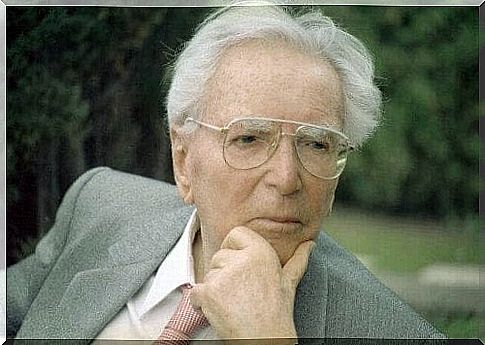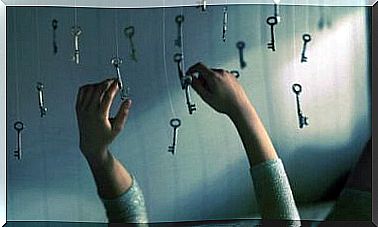The Three Basic Principles Behind Viktor Frankl’s Logotherapy

Logotherapy is also known as “the third Vienna School of Psychotherapy”. The first psychological school was Sigmund Freuds, the second was Alfred Adlers and the third was the one founded by Viktor Frankl. And this is the one we are going to focus on here.
Freud claimed that man was motivated by “lust”. Adler later claimed that she was motivated by “power”. In contrast to both of them, Frankl believed that the driving force of man was instead “meaning”.
Psychological historians agree that the study of psychoanalysis to some extent coincides with the study of the life of the author Freud. In the same way, we can say that the study of logotherapy gives us a better understanding of Frankl’s life. It is difficult to understand the development of the third psychological school if one has no knowledge of the founder’s life history.
Viktor Emil Frankl was born in Vienna on March 26, 1905. He survived four concentration camps, including Auschwitz. Already at an early age he showed interest in medical and scientific studies. Furthermore, he had a very critical attitude towards reductionist ideas.
He felt his calling very early in life and began his own search for meaning long before the Holocaust. It was during the Holocaust years that he worked on his most well-known book, Life Must Have Meaning.
Viktor Frankl was convinced that what makes us unique is the human spirit. Reducing life and human nature to “nothingness”, as many of the philosophers and psychiatrists of the time did, was not the most adequate way of looking at life according to him.

By the age of 19, he had already developed his two basic ideas.
- First, we must answer the question that life asks us about the meaning of our lives, because we are responsible for our existence.
- Secondly, the ultimate meaning is beyond our comprehension and it will remain there. This is something we must believe in during our search for meaning.
Frankl’s experience in the concentration camps showed him that people have the ability to find meaning. A meaning with all the conditions of life, even the most absurd and painful.
In his work Life must have meaning , Frankl writes about his experiences in the concentration camps (Turkhein, Kaufering, Theresienstad and Auschwitz). He describes the beatings the prisoners endured, but also the beauty of the human spirit. In short, the book is about how it is possible to rise above terror and find meaning even in the most horrible of circumstances.
Viktor Frankl passed away on September 2, 1997 at the age of 92, leaving a fantastic legacy. With his life and work, he reminds us that we can all create meaning that will save us in difficult times and that never disappears, no matter what we do or how uncertain life may be.
Everything can be taken away from man except one thing: the last of man’s freedoms – to choose how to relate to the given circumstances, to choose his own path.
As we mentioned earlier, logotherapy is known as the third Vienna School of Psychotherapy. It began to spread around the world in the 1940s. Logotherapy is a method of overcoming human conflicts that cause suffering.
It enables us to find meaning in difficult, painful situations. These situations instead give us the opportunity to grow. With this method we can find meaning in all events in life, whereby we have the opportunity to live a full life.
“Logos” in logotherapy means “meaning”, which is something that people are always looking for. Logotherapy thus means therapy through “meaning”.

The three basic principles or pillars behind logotherapy are:
- Freedom of will
- The will to meaning
- The meaning of life
Freedom of will
Freedom of will develops through a specific human ability called “self-distance”. It is the ability to see, accept, control and visualize oneself. According to Frankl’s view, we are thus free from three sources of influence:
- Instincts
- Heritage
- Environment
Man is characterized by all three, but they do not determine who we are. We are not predetermined or completed. We are free from these three aspects. Whenever man is freed from something, there is a reason for it. Herein lies the concept of responsibility. Man is free to be responsible and is responsible for being free.
Based on this existential analysis , man is responsible for the design of meaning and values. Man has the task of shaping the meaning of his life and the values that give meaning to it. No one else is responsible for this assignment.
The will to meaning
The will to meaning and the self-transcendence that is characteristic of man are intimately connected. Man always points towards something beyond himself, towards a meaning he must first discover and whose fullness he must arrive at. The will to desire (Freud) and the will to power (Adler) give man prestige. But these concepts stand in opposition to self-transcendence and lead to frustrations in life.
Logotherapy assumes that desire and power are the consequences of having reached a goal, but not the goals themselves. Therefore, the consequence for people who only strive for desire or power is that they live in frustration. They feel trapped in an existential vacuum. The will to meaning seeks neither power nor desire. It does not even seek happiness. Instead, it focuses on finding arguments – reasons – to be happy.

The meaning of life
The above two principles refer to a person who is willing to take a stand on the circumstances of life, with total freedom, based on the meaning they bring. This is what characterizes a person who seeks meaning. Life has meaning. This sentence is unique to all of us. Thus, it is our duty as conscious and responsible beings to discover our own version of this meaning.
Death can only instill fear in those who are unable to fill the time they have to live.
We do this through three basic channels that correspond to three categories of values.
- Sometimes it leads us to create creative values.
- Other times we are affected by an experience. For example, when we are watching a sunset or when someone is holding our hand.
- Other times we are faced with the limitations of life itself (death, suffering).
In any case , life always has a hidden meaning until the end. We have the fascinating task of constantly trying to find it and make it a reality. These are the three basic principles behind Viktor Frankl’s logo therapy. As we have seen, it is a humanistic-existential view of man. And it can be difficult to understand if you are not familiar with existentialism. But it is worth considering considering all it has to offer in terms of outlook on life.









